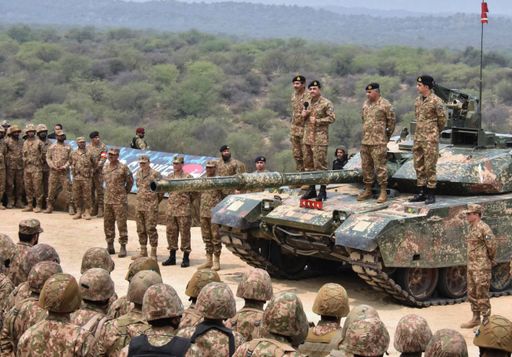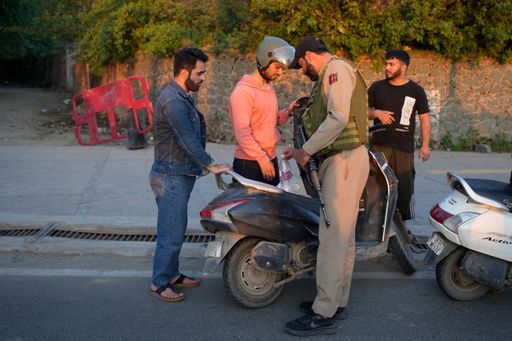US Vice President JD Vance has said that Washington hopes that India's response to the recent attack in India-administered Kashmir does not lead to a broader regional conflict.
He said that the US wanted to avoid seeing a wider regional conflict.
"Our hope here is that India responds to this terrorist attack in a way that doesn't lead to a broader regional conflict," Vance said in an interview on Fox News' "Special Report with Bret Baier" show.
Vance said that Washington hoped Pakistan would cooperate with India to hunt down those responsible for the attack.
"And we hope, frankly, that Pakistan, to the extent that they're responsible, cooperates with India to make sure that the terrorists sometimes operating in their territory are hunted down and dealt with. That's how we hope this unfolds. We're obviously in close contact. We'll see what happens."

Tensions hit boiling point
The development comes a day after the Pakistan Army conducted full-scale military exercises amid rising tensions with its eastern neighbour, India, according to state-run media.
The war exercises include a "practical demonstration of modern weaponry given war strategy, where officers and soldiers actively showcase their professional capabilities during the drills," Radio Pakistan reported on Thursday, citing security sources.
Relations between India and Pakistan plunge to their lowest level in years. India has accused Pakistan of supporting "cross-border terrorism" after gunmen carried out the worst attack on tourists in New Delhi-administered Kashmir, killing 26.
Islamabad has denied any involvement, calling attempts to link Pakistan to the attack "frivolous" and vowed to respond to any Indian action.
US Secretary of State Marco Rubio called for de-escalation of tensions in South Asia on Wednesday.
The United Nations has also urged the two countries to show "maximum restraint" so that issues can be "resolved peacefully through meaningful mutual engagement".
Kashmir dispute
Following the Pahalgam attack, both sides have implemented a series of retaliatory measures.
India suspended a crucial water-sharing Indus Water Treaty with Pakistan and closed the only functional land border crossing. It revoked visas issued to Pakistanis with effect from Sunday.
Pakistan retaliated by cancelling visas issued to Indians, closing its airspace to Indian airlines, halting trade with its neighbour and suspending Simla Agreement with India. The 1972 treaty was aimed to establish peace and resolve disputes bilaterally, particularly focusing on the Kashmir dispute.
India and Pakistan have fought over the former princely state since their independence from British rule in 1947, with the border splitting generations of families.
Rebels in the India-run area have waged an insurgency since 1989, seeking independence or a merger with Pakistan.
New Delhi, which has deployed some 500,000 troops in Muslim-majority India-administered Kashmir.
In recent weeks, the Modi government has intensified its crackdown on Muslim organizations, literature, and schools, triggering unrest across the region.
At the same time, India has issued 82,000 domicile certificates to non-Kashmiris in the disputed territory, fueling concerns over deliberate demographic shifts.
In the wake of the Pahalgam attack, over 1,500 people have been arrested in India-administered Kashmir.
Meanwhile, reports have emerged of Kashmiri Muslims—mostly students—being assaulted by Hindu right-wing mobs in several Indian cities.




















